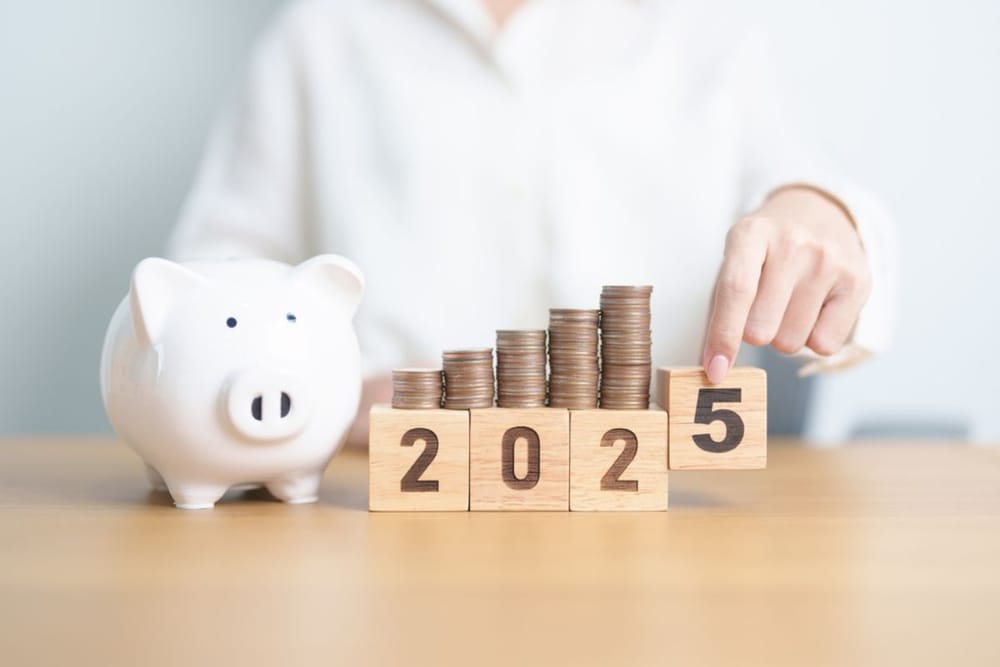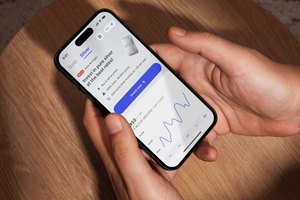With 2025 here, it’s the perfect time to think about your money and how to make smarter financial choices. Living in Dubai offers endless opportunities, but it also comes with unique challenges, especially when it comes to managing expenses and planning for the future. A little planning now can make a big difference in creating a secure and comfortable lifestyle.
Saving and investing might initially feel overwhelming, but it doesn’t have to be complicated. If your goal is to build an emergency fund, explore investment opportunities, or take better control of your spending, there are plenty of ways to start. This guide will walk you through simple, practical tips to help you make the most of your money and set yourself up for a successful 2025.
Assessing Your Current Financial Health
Before setting any financial goals, it’s important to understand where you currently stand. Start by tracking your income and expenses to get a clear picture of your spending habits. This will help you identify areas where you might be overspending and where you can cut back.
Using a budgeting tool or app can make this process easier. Popular options like Wally or YNAB (You Need a Budget) allow you to track expenses, set spending limits, and manage savings goals—all tailored to living in Dubai.
Once you’ve reviewed your finances, consider your existing savings and any debts you may have. Building a strong foundation starts with knowing what’s coming in, what’s going out, and what you can set aside for the future.
Setting Clear Financial Goals
Once you’ve assessed your financial health, the next step is setting clear and achievable goals. Start by thinking about what you want to accomplish this year. Are you saving for a down payment on a home, planning for a big vacation, or aiming to build a solid retirement fund?
Break your goals into two categories:
- Short-term goals: Creating an emergency fund, paying off a credit card, or saving for an upcoming expense.
- Long-term goals: Investing in property, building a retirement fund, or planning for your child’s education.
To stay on track, make your goals specific and measurable. For example:
- “Save AED 10,000 by the end of the year.”
- “Pay off AED 5,000 of credit card debt in six months.”
- “Invest AED 1,000 per month into a mutual fund.”
It’s okay to start small. The key is consistency. Setting realistic milestones helps you stay motivated and makes your financial goals feel achievable.
Saving Strategies in Dubai
Saving money in Dubai doesn’t have to mean giving up the things you enjoy. By making a few smart adjustments, you can reduce expenses and grow your savings without feeling deprived. Here are some practical tips tailored to life in Dubai:
- Negotiate Your Rent: Rent is often one of the biggest expenses. Check market rates and talk to your landlord to negotiate a better deal, especially if you’re renewing your lease.
- Save on Utilities: Simple changes like turning off unnecessary lights, using energy-efficient appliances, or limiting air conditioning use during cooler months can lower your DEWA bills.
- Shop Smart: Take advantage of discounts and promotions at major supermarkets. Shopping during sales events like Dubai Shopping Festival can also save you money.
- Use Public Transport: The Dubai Metro, buses, and trams are affordable and reliable. Consider these options instead of taxis or ride-hailing apps for daily commutes.
- Dining Wisely: Enjoy Dubai’s dining scene without overspending by using apps like Zomato Pro or The Entertainer to find deals and discounts on restaurants.
- Create an Emergency Fund: Set aside a portion of your income each month in a high-interest savings account. This ensures you’re prepared for unexpected expenses without dipping into your regular savings.
Even small adjustments can add up over time, creating a solid foundation for financial stability. The key is to prioritize your needs and track your spending regularly to stay in control.
Investing Wisely in Dubai
Once you’ve established your savings, the next step is to explore investment opportunities that can help grow your wealth. Dubai offers a variety of investment options, catering to different levels of experience and financial goals. Here’s how to get started:
Stock Market and ETFs:
Dubai has access to both local and international stock markets. The Nasdaq Dubai and Dubai Financial Market (DFM) are great starting points for investing in regional companies. You can also explore international ETFs (Exchange-Traded Funds) for diversified, low-cost investments.
Real Estate Investments:
Dubai’s real estate market remains a popular choice for investors, offering opportunities in residential, commercial, and holiday properties. With attractive rental yields and no property tax, this can be a lucrative long-term investment. Consider upcoming areas like Dubai South or established neighborhoods like Downtown Dubai based on your budget.
Mutual Funds and Index Funds:
For those new to investing, mutual funds and index funds offer a simple way to get started. These funds pool money from multiple investors to invest in a mix of stocks, bonds, or other assets, reducing risk through diversification.
Sharia-Compliant Investments:
Dubai also offers Islamic finance options that align with Sharia principles. Sukuk (Islamic bonds) and Halal funds are ideal for investors looking for ethical financial products.
Cryptocurrency and Blockchain:
While high-risk, Dubai’s progressive stance on cryptocurrency has opened up opportunities in blockchain technology and digital currencies. If you’re considering this, invest cautiously and only with money you can afford to lose.
Tips for Smart Investing
- Start small and diversify to minimize risk.
- Research thoroughly or consult a financial advisor for professional guidance.
- Monitor your investments regularly but avoid reacting to every market fluctuation.
Managing Debt
Debt can quickly become a burden if not managed carefully, but with the right strategies, you can take control and work toward financial freedom. Here are some effective ways to manage debt while living in Dubai:
- Understand Your Debt: Start by listing all your debts, including credit cards, personal loans, and any other liabilities. Note the interest rates, monthly payments, and due dates for each.
- Prioritize High-Interest Debt: Focus on paying off high-interest debts first, such as credit cards, while continuing to make minimum payments on others. This will save you money on interest in the long run.
- Consolidate Loans: If you have multiple loans, consider consolidating them into one with a lower interest rate. Many banks in Dubai offer debt consolidation services, which can simplify payments and reduce overall costs.
- Set Up Automatic Payments: Avoid missed payments by setting up automatic transfers for your monthly dues. This also protects your credit score, which is important if you plan to apply for loans in the future.
- Limit Credit Card Use: Try to use credit cards only for necessary expenses that you can pay off immediately. Avoid falling into the trap of making minimum payments and accumulating interest.
- Negotiate with Creditors: If you’re struggling to make payments, reach out to your bank or creditor to discuss flexible repayment options. Many institutions in Dubai are willing to work with borrowers to find a solution.
- Build a Debt Repayment Plan: Allocate a specific portion of your income each month to tackle debt. The snowball method (starting with smaller debts) or avalanche method (starting with higher-interest debts) can help you stay focused and motivated.
Financial Literacy and Education
Building financial knowledge is an essential part of achieving your financial goals. The more you understand about managing money, saving, and investing, the better equipped you’ll be to make smart decisions.
Ways to Improve Financial Literacy:
- Attend Workshops: Look for local seminars or online workshops on personal finance, investing, and budgeting.
- Explore Online Resources: Websites like Investopedia and financial blogs tailored to UAE residents offer valuable insights.
- Use Financial Apps: Apps like Mint and Wally not only track expenses but also provide tips to improve your financial habits.
- Read Books on Finance: Titles like The Richest Man in Babylon and Your Money or Your Life can offer timeless financial wisdom.
Educating yourself about money can help you avoid costly mistakes and empower you to plan confidently for the future. The UAE offers many resources to support financial growth, so make use of what’s available to expand your knowledge.
Mistakes to Avoid
Even with the best intentions, it’s easy to make financial missteps that can derail your progress. Spending too much on luxury items or dining out frequently in Dubai’s vibrant social scene can quickly add up. Sticking to a budget ensures you enjoy the city without compromising your savings.
Many people overlook the importance of having an emergency fund, which can act as a safety net for unexpected expenses. Aiming to save three to six months’ worth of living costs can provide peace of mind during tough times.
Credit cards are convenient but can lead to mounting debt if used excessively. Paying off the balance in full each month helps you avoid high-interest charges and maintain good financial health.
Keeping all your savings in a low-interest account might feel secure, but it limits the potential for growth. Exploring simple investment options like mutual funds or index funds can help your money work harder for you.
It’s also easy to lose track of spending without regular reviews of your expenses. Taking time each month to analyze where your money is going can highlight areas where you can cut back and redirect funds toward your goals.
Finally, be cautious about schemes promising quick, high returns with minimal effort. These are often too good to be true, and thorough research or professional advice can prevent costly mistakes.
Achieving financial success in 2025 doesn’t have to be overwhelming. By setting clear goals, saving consistently, and exploring smart investment opportunities, you can take meaningful steps toward a more secure future. Living in Dubai offers unique challenges, but it also provides plenty of resources and opportunities to manage money effectively.
The key is to start small and stay consistent. With the right mindset and practical strategies, you can make this year your most financially rewarding one yet.
Also Read:



















